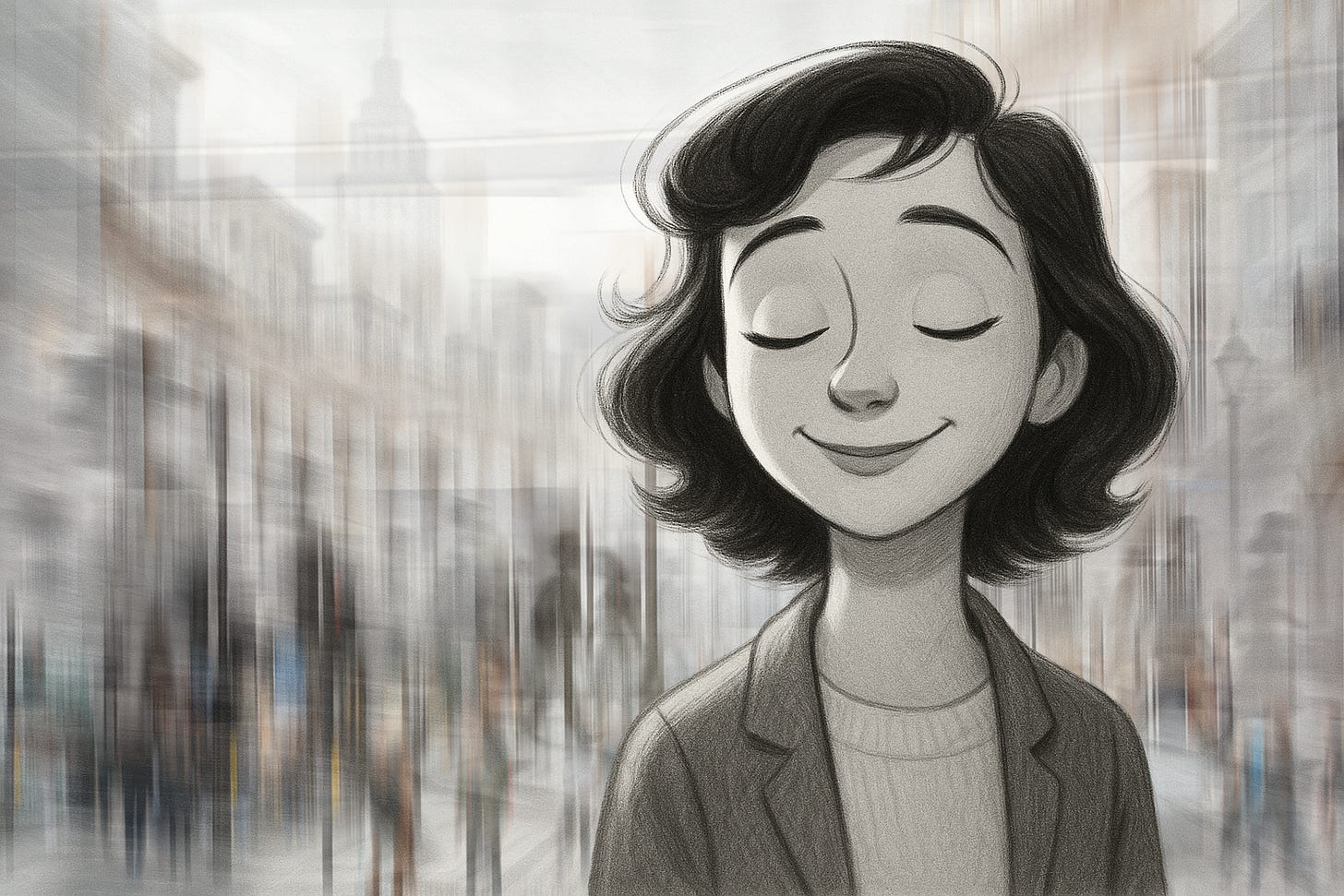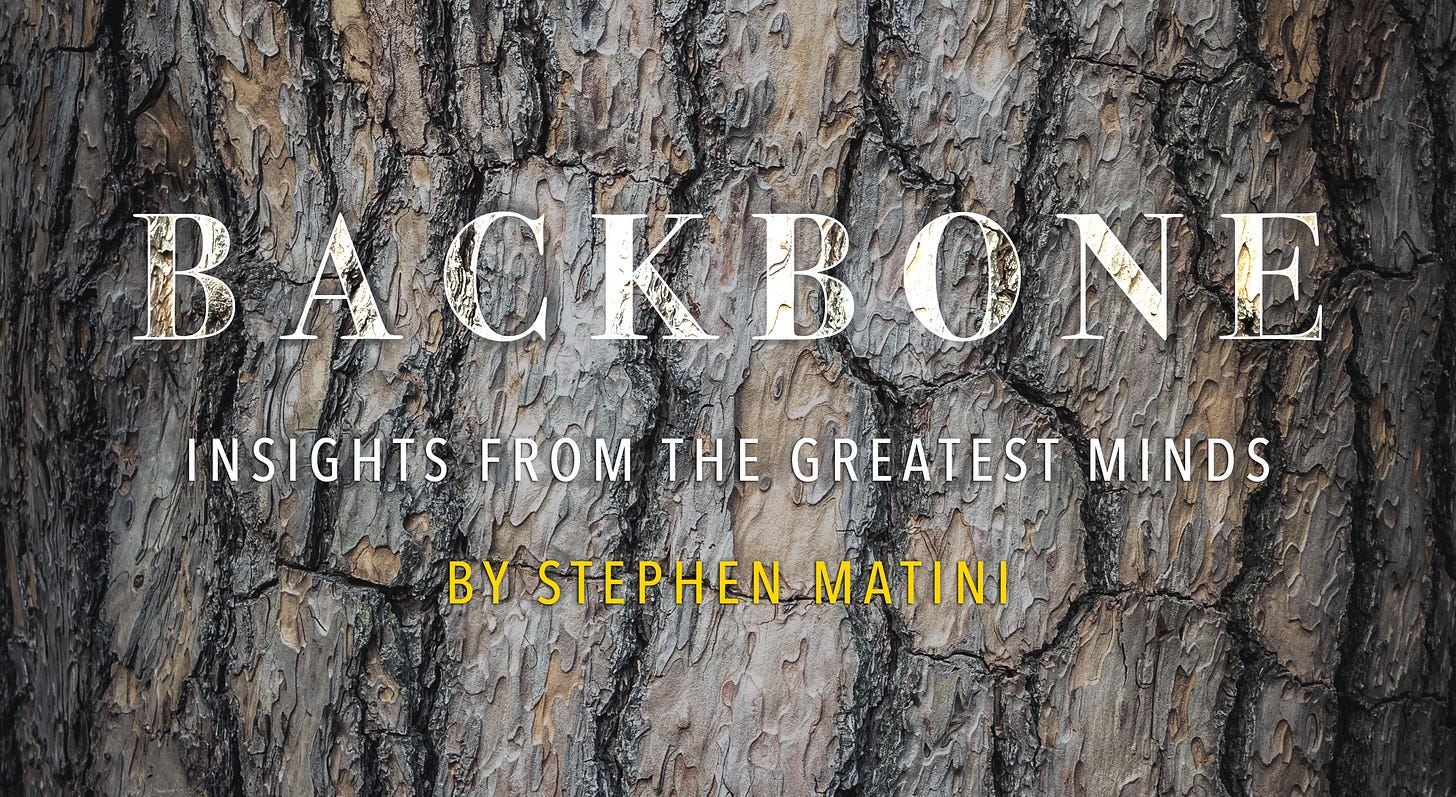REMINISCENCE: Forgiveness Is Choosing What to Carry and What to Leave Behind
Why forgiveness isn't just about who hurt you, but what you choose to hold on to. Best suited for: unresolved endings, emotional closure, quiet resilience, and the people who let you down.
The BACKBONE series offers a raw, honest take on leading with authenticity and purpose in today’s complex world, fueled by insights and timeless wisdom from the greatest minds.
How much potential dies in companies not from laziness or lack of direction but from silent fury? We love to talk about psychological safety as the key to trust and collaboration but say very little about the fact that, more often than we’d like, we’re cranky as hell.
I’ve watched people and teams navigate the wreckage of mergers and acquisitions. We discussed the stages of change, the resilience required to move forward, and the growth that ideally follows. Yet, resentment is the one element that is quickly brushed aside, treated as a childish reaction that grown-ups should be able to release at will.
Resentment is a boundary. It emerges as a shield we raise to protect ourselves from those who did not provide the space for our voice to be heard. Whether harm is inflicted deliberately or thoughtlessly, resentment settles deep in the heart, lighting up truths we might rather avoid.
But left unattended, resentment can become blinding, distorting our view of life itself. A single painful memory replayed over time can grow into the brightest star in our mental galaxy, guiding choices, relationships, and experiences for years to come.
How do you actually forgive someone? And how do you help someone move on?
Studies from the Journal of Social and Clinical Psychology highlight the dangers of harboring resentment, as it traps us in a prison that prevents us from fully experiencing life. It’s a habit that filters our entire experience through a lens of past pain, a cycle that keeps us emotionally anchored to those moments of disappointment and stops us from moving forward.
I used to believe forgiveness had to be earned, that if someone hurt me, the only way I could ever come close again was if they showed me they'd changed. I needed some concrete evidence that they had taken in the weight of what they did and allowed it to shape them. I'm not really sure this method has ever worked very well. It feels honest and fair, but it's also tight.
Maybe I’ve outgrown the part of me that thought control was the same as healing. Perhaps I’ve lived through enough endings to realize that forgiveness can’t always wait for the other person’s growth. People grow, for the most part, but not necessarily in the ways we expect them to. And maybe what I’m calling forgiveness now has nothing to do with them at all.
I don’t need protection from my own memories but a perspective that makes the air breathable again. There’s this idea I’ve been circling.
Perhaps forgiveness is simply a decision to stop feeding the part of me that craves remembering the worst. Instead of keeping score or scanning for signs of remorse, I could just choose to let the good parts stay lit.
Because even the relationships that ended badly, the ones that cracked, dissolved, or disappeared, held moments that were real. And those moments didn’t become lies just because the ending was ugly.
In the aftermath of a professional or personal relationship that went awry, it’s natural to reframe the whole thing through a bitter lens, turning love into foolishness, friendship into delusion, and generosity into weakness.
But if you do that long enough, it’s not just the faith in others that goes out of the window but your own judgment as well. You stop trusting that your joy was ever real and the hope for better things to come thinner and rarer.
Whenever my thoughts turn to the bad, the hurt, and the reminder that I should never get too close to my “perpetrators” again, I remember them as the people who once made my life beautiful. I do not hold them as warning signs, but I remember the times when only our laughter and communion made everything seem possible.
Forgiveness is less about letting someone off the hook and more about refusing to let a single chapter define the entire story. It’s not about reconciliation, and it’s not even about resolution. Perspective tells me that a connection can end in pain and still have been sacred in its time. That “love” can be real, even when it doesn’t last.
Forgiveness can feel like surrender, but letting go is a powerful act, a way to preserve what was beautiful while leaving behind what no longer serves me. Because forgiveness, the kind I’m practicing now, doesn’t demand closure but lets what matters stay intact without giving the pain the final word.
PAUSE. LEARN. MOVE ON.
Psychologists call this positive reminiscence, the act of deliberately recalling past joy to anchor yourself in the present, not to sugarcoat what happened or rewrite it but to keep it from swallowing everything else whole. Research shows this kind of memory can reduce stress, increase resilience, and deepen emotional closure, even when repair isn’t possible.
In The How of Happiness, researcher Sonja Lyubomirsky writes that “savoring” past joy—lingering on the memory of a meaningful moment, letting it fill your present—is one of the most underused yet powerful tools for building resilience. It doesn’t erase the pain, and it doesn’t require forgiveness, but it reminds us that the person we were in those moments of joy still lives within us now.
We get lighter when we choose what to carry and what to leave behind. If this piece opened something in you, subscribe to PITY PARTY OVER, or spend time with ALYGN, where we practice leadership not through perfection or control but by reclaiming the parts of ourselves still willing to remember what was real.
You can reach Stephen at stephen@alygn.company.




